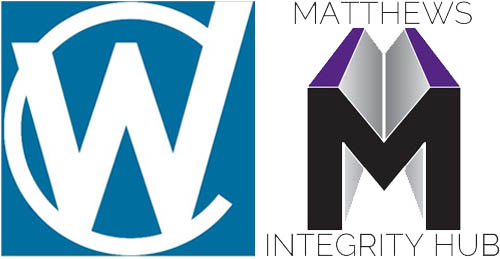ASSET INTEGRITY: CODE PRINCIPLES
What part do codes and standards play in asset integrity?
First, read our linked article Codes, Standards and RPs to understand the differences in status and content of these three types of published documents. All exert a major influence on the activities of plant integrity so it is important to see how they fit in.

Compliance with construction codes
A key step in assuring the mechanical integrity of an equipment item is construction code compliance. For construction codes (such as ASME VIII-I for example) this confirms that the equipment had been designed, fabricated and tested to an agree set of rules. This does not necessarily mean that the item is suitable for the purpose for which it is being used; just that is has been build to an agreed set of rules. As an example, it is perfectly possible to have an ASME VIII-I vessel which is not suitable for an acidic or sour service environment even though it is fully code-compliant.
If something is not in compliance with a statutory code, then this obviously has an implication for its safe and legal use. If it is out of compliance with a non-statutory standard however, you can argue this is less of an issue. All standards normally include the get-out that the standard only presents one way to do things, and there may be others equally as good. Fig 1 below shows the large scope of construction codes available for fixed equipment.
Compliance with Post Construction Codes (PCCs)
Post construction codes (such as API 510) cover the operational aspects of plant. They typically have an extended scope covering inspection, maintenance, repair and alteration. They have relaxed requirements compared to construction codes to reflect the fact that construction codes include significant design ‘margins’ that can be reduced slightly without causing a big increase in risk.
PCCs are an important step in plant integrity assessment, forming a mid-way position between construction codes and more advanced Fitness-for-Service Recommended Practices and other published documents.

Compliance with Recommended Practices and Published Documents
These have a much more advisory role. They can take a wider selection of technical viewpoints and it is not unusual for different RPs to recommend different approaches and both be considered correct.
The world of plant integrity contains large numbers of RP documents. Some are very wide-ranging, under constant review and have large and changing scopes. API RP 579 Fitness-for-Service (FFS) is a good example; it is divided into multiple sections which develop at different rates and can use different terminology. Taken together they provides a comprehensive coverage of FFS methods but the correct method to use in any individual situation has to be decided by the document user to suit themselves, rather than being fully prescribed. This can lead to multiple possible analysis methods and conclusions, depending on the method chosen.
Fig 2 shows the levels of integrity assessment, leading up to the final FFS stage
Test your code knowledge
Try the technical quizzes on our Quizpage
For the ultimate test, compete in the MATTHEWS MASTERCLASS QUIZ: It’s a test of your knowledge of Integrity Code and technical knowledge across several levels and type of equipment. To match its MASTERCLASS designation you can’t expect it to be easy; in fact it is purposely designed to be tough. If you want to compete with your peers in the integrity industry, and see how good you really are, then click the MATTHEWS MASTERCLASS quiz and follow the instructions
Can we help you further?
Yes, if you have any particular questions on the use of pressure equipment codes, standards or RPs in asset integrity assessment then contact us on our email or telephone service.
For example:
- Which API RP 579 sections should I use for pitting assessment?
- Are there any European Post Construction Codes (PCCs)?
- What do UK pressure equipment regulations say about FFP assessment?
Matthews Integrity Hub: HEAD OFFICE is OPEN EVERY DAY….0730 – 2200 Monday – Sunday…That’s correct, all week, every week, including holidays
 If we happen to miss your call, leave a message and we will call you back just as soon as we pick it up. Sorry, there’s no automated messages, call queueing, voice recognition tools or canned music. Try it and see.
If we happen to miss your call, leave a message and we will call you back just as soon as we pick it up. Sorry, there’s no automated messages, call queueing, voice recognition tools or canned music. Try it and see.
CONTACT US
Tel: 07746 771592 help@matthewsintegrity.co.uk





